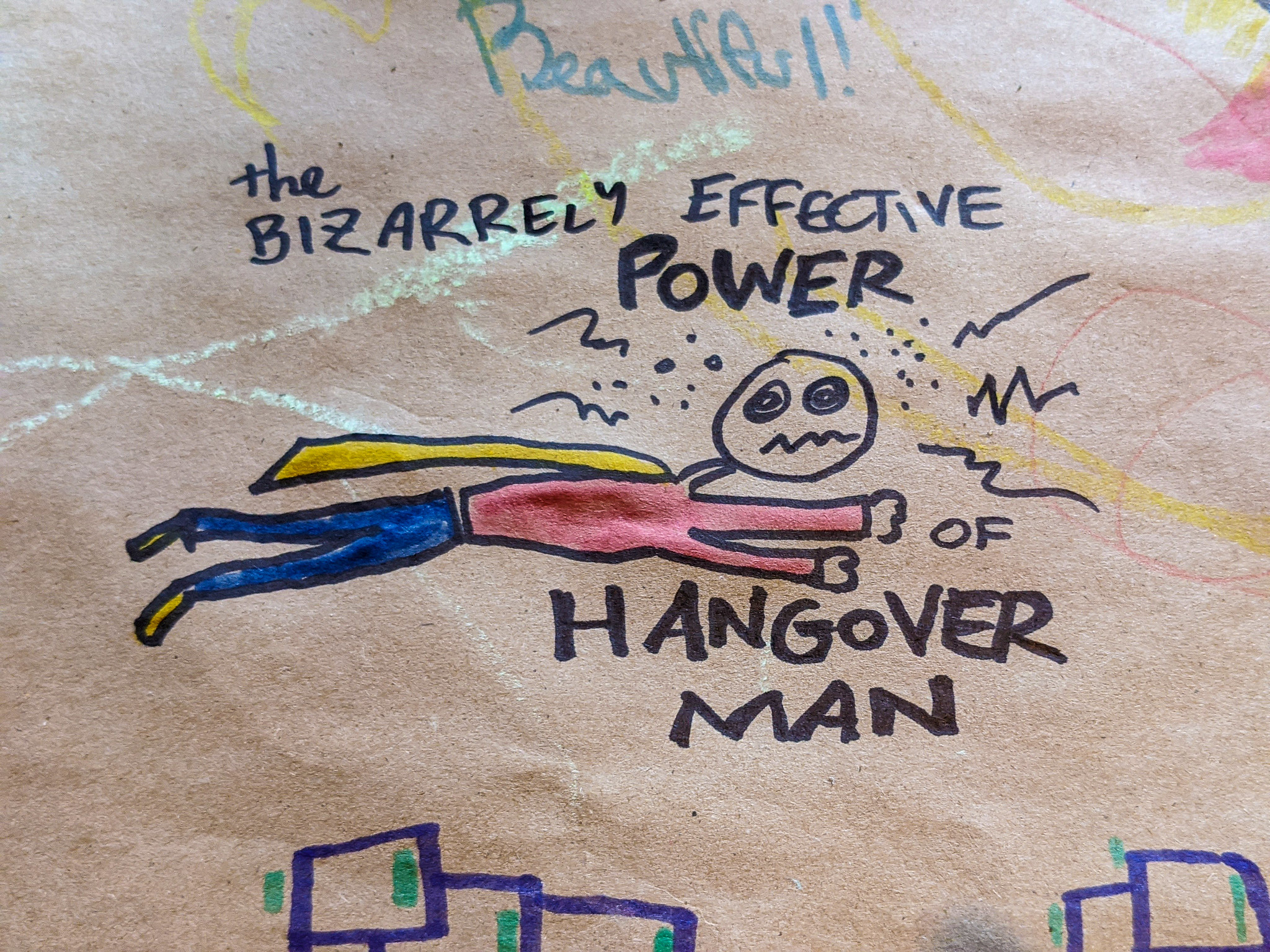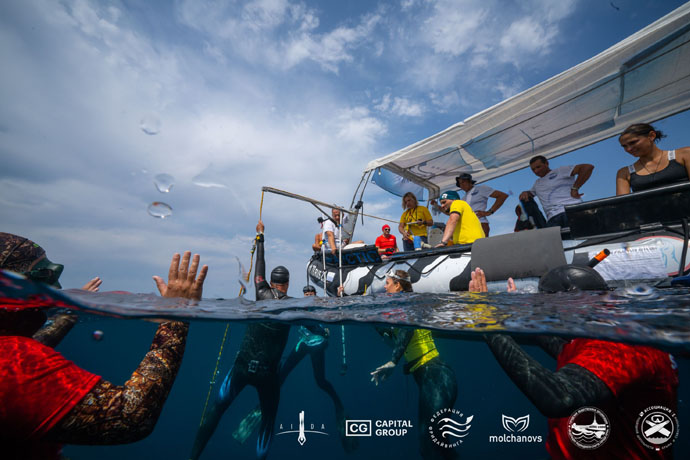Hangovers and Freediving: How Drinking Affects Your Training

Credits: Bart Everson, flickr
Introduction
Freediving in Cabo Verde is an exhilarating experience that requires optimal physical and mental states for success. However, the consumption of alcohol prior to a training session can have a significant impact on your performance. In this blog post, we will explore the effects of hangovers on freediving and provide insights into why it is crucial to avoid drinking before hitting the depths of Cabo Verde's stunning waters.
I. Understanding Hangovers
Hangovers are more than just a pounding headache and queasy stomach. They encompass a range of symptoms, including dehydration, fatigue, nausea, and decreased cognitive function. When you consume alcohol, it impairs the body's ability to retain water, leading to dehydration. This, combined with the toxic byproducts of alcohol metabolism, contributes to the dreaded hangover. In the context of freediving, dehydration can be particularly concerning as it affects lung capacity and increases the risk of shallow-water blackout.
II. The Physiology of Alcohol and Hangovers
Alcohol is rapidly absorbed into the bloodstream, affecting various organs and systems in the body. It disrupts the normal functioning of neurotransmitters, leading to impaired coordination, balance, and reaction times. Additionally, alcohol triggers inflammation, further compromising physical abilities. Case studies have shown that individuals with high blood alcohol levels experienced a significant decrease in static apnea duration and had difficulties maintaining proper buoyancy during freediving sessions.
III. Impaired Physical Performance
When alcohol is present in the body, it negatively impacts physical performance, which is crucial for successful freediving. Coordination and balance are essential for precise movements underwater, while muscle strength is needed for efficient propulsion. Alcohol-induced impairment in these areas can lead to accidents, injuries, and suboptimal dives. In fact, a study conducted on freedivers found that even low levels of alcohol consumption resulted in a reduction in diving performance, including slower descent times and decreased depth achievements.
IV. Impact on Mental State
The mental aspect of freediving is just as crucial as the physical. Alcohol interferes with cognitive function, making it difficult to focus, assess risks accurately, and make quick decisions while underwater. Freedivers require a clear and alert mind to navigate potential hazards and adapt to changing conditions. A detailed case study conducted on divers who consumed alcohol before training sessions revealed a 40% decrease in reaction time and compromised decision-making abilities, ultimately increasing the risk of accidents.
V. Dehydration and Its Effects
Dehydration is a significant concern for freedivers, as it can directly impact lung capacity and overall performance. Alcohol is a diuretic, causing increased fluid loss through urine, leading to dehydration. Depleted water levels in the body can result in reduced lung expansion and decreased oxygen exchange, severely limiting freediving capabilities. To combat dehydration, it is crucial to maintain proper hydration levels before and during training sessions. Here are some key strategies to stay hydrated:
Drink plenty of water throughout the day.
Limit alcohol consumption or abstain entirely before training sessions.
Include hydrating fruits and vegetables in your diet, such as watermelon, cucumber, and oranges.
Avoid caffeine and other diuretic substances that can contribute to dehydration.
VI. Delayed Recovery and Training Progress
Effective recovery is essential for optimizing training progress in freediving. However, hangovers can disrupt the recovery process, hindering performance improvements. Alcohol disrupts sleep patterns, resulting in reduced sleep quality and delayed recovery. Furthermore, the metabolic byproducts of alcohol metabolism can prolong fatigue and impair muscular repair. To ensure proper recovery and training progress:
Allow ample time for alcohol to leave your system before engaging in a freediving session.
Prioritize restful sleep and establish a consistent sleep schedule.
Incorporate post-training recovery techniques, such as stretching, deep breathing exercises, and adequate nutrition.
VII. Personal Stories and Experiences
Real-life experiences from freedivers who have experienced the negative effects of drinking before training sessions can serve as valuable lessons. These stories shed light on the consequences of alcohol on freediving performance and safety. For instance, a case study involving a professional freediver showcased a significant decrease in dive times and overall performance after consuming alcohol the night before training. These personal anecdotes reinforce the importance of avoiding alcohol to maintain peak performance and ensure a safe diving experience.
VIII. Strategies for Alcohol Moderation
While it's generally advisable to avoid alcohol before freediving sessions, some individuals may still wish to consume it responsibly. Here are practical tips for alcohol moderation:
Stay hydrated: Drink plenty of water before, during, and after alcohol consumption to mitigate the dehydrating effects.
Consume in moderation: Limit your alcohol intake to minimize its impact on physical and cognitive abilities.
Allow ample time for alcohol to leave the system: Ensure a significant time gap between alcohol consumption and freediving sessions to give your body enough time to metabolize and eliminate alcohol from your system.
Plan ahead: If you have a freediving session scheduled, make the conscious decision to abstain from alcohol the night before, prioritizing your training goals.
IX. Conclusion
In conclusion, understanding the effects of hangovers on freediving is crucial for optimizing your training and ensuring a safe diving experience. The impact of alcohol on physical performance, mental acuity, recovery, and training progress cannot be overlooked. By sharing personal stories, discussing responsible drinking practices, and emphasizing the importance of informed decisions, we aim to guide freedivers in Cabo Verde and beyond to prioritize their goals and make choices that will contribute to their success and well-being in the captivating world of freediving.




